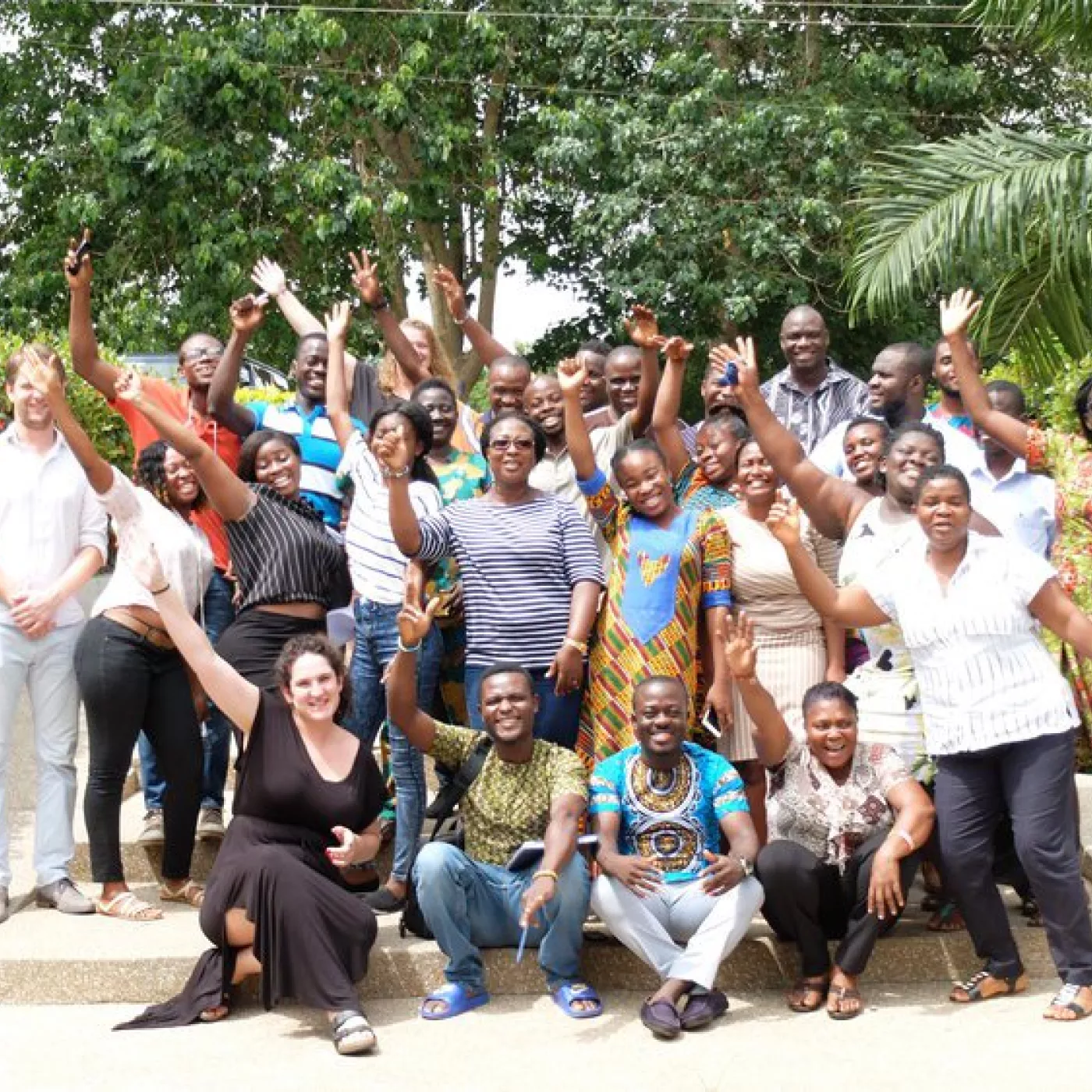"What we eat matters – collaborating in producing it even more!"

Food science expert Professor Daniel Sila from Kenya promotes international multi-stakeholder collaboration in food processing throughout the entire chain. Stepping up the pace in providing healthier diets, accessible to all. He knows from experience in collaborating with Dutch knowledge partners that this is the way forward.
On 25 October 2019, the African Union Commission and the European Commission, will host a conference on Africa-Europe collaboration in higher education. Nuffic and sister organisations in internationalisation of education DAAD Germany, the British Council and Campus France are co-hosts. By investing in skills development and linking education more to the job markets’ demands, sustainable social and economic development can be achieved.
Professor Daniel Sila from Kenya is one of the agri-food transformation experts to speak in a thematic session. His background in food science and technology, combined with his experience from a successful and innovative Nuffic funded project, will bring a valuable perspective to the conference.
Fortified food important vehicle to a healthier diet
“What we eat matters,” says Sila, Associate Professor and Dean of Food and Nutrition Sciences at the Jomo Kenyatta University of Agriculture and Technology (JKUAT). “Early in the ’80s and ’90s, there were a lot of people that had goitre, which is swelling of the thyroid glands, because of a lack of iodine,” he says.
The thyroid glands regulate the body's metabolism, the chemical processes that occur in our body. Besides the hormonal disbalance goitre creates, the swelling can lead to difficulty in swallowing and breathing. “In response, the government then made it mandatory for all the factories producing salt to be iodised. As a result, cases of goitre reduced significantly across the country. It is so important, emphasises Professor Sila, “for us to think of food in diverse ways. Common staples, if fortified, can be an important vehicle to healthier diets that are accessible to all. Leading to healthier people.”
Innovation meeting people’s needs
“Innovations in science should not just remain in the university,” he argues. “For me, the excitement of being an Associate Professor and Dean of Food and Nutrition Sciences at JKUAT is the ability to work in research as well as education and mentorship.”
Sila is an advocate for capacity building for younger scholars. He is adamant that the lessons learned in research must be shared amongst different institutions as well as to the general public. “Innovation must reach out and be disseminated to people and meet their needs. In such a way that it will be able to be used to create the change desired by local and even national governments,” he stresses.
“The project unlocked some of the main challenges faced by the food industry in Kenya.”
- Daniel Sila, Jomo Kenyatta University of Agriculture and Technology

“The largest hindrance in food and nutrition security in Kenya, in my opinion, is the lack of a strong food processing and preservation industry. Post-harvest losses are as high as 40% to 60% for most fresh produce. This is especially a problem in fruits and vegetable, cereals and legumes.” To address an issue that influences so many, a multi-pronged approach is essential. The general lack of value addition can be found throughout food processing and Professor Sila is equipping people to tackle that. “The Nuffic project INNOFOOD was a good pilot for this. It built the capacity of education staff and students to generate, manage and capitalise on Research & Development activities.”
Linking up research, study and business
In the INNOFOOD collaboration project with Dutch partners, Ghanaian and Kenyan education institutions and private sector were heavily involved. Both countries focus on food processing for (economic) development and stimulate local opportunities for it. By connecting researchers, students and entrepreneurs the solutions are driven by needs from the sector. Companies want innovation and quality assurance to be feasible and marketable.
“This approach uses the open innovation funnel model in which the knowledge institutes act as the converging space where internal and external ideas come together to feed and guide an R&D agenda that reflects and stays abreast of market trends”, he adds. The initiative uses a blended approach, combining face-to-face and online training, coaching and peer learning.
Not only did this ‘triple party’ approach work well in the individual countries, the knowledge exchange between the Dutch, Ghanaian and Kenyan stakeholders enriched the project tremendously. He sees great value in international cooperation. “The gain that can be obtained from cross-fertilisation of knowledge on food processing is that it speeds up the pace in which the food processing industry evolves.” Therefore, he is also in Brussels to promote international collaboration in capacity building of education.
Looking back on a big success
“The project unlocked some of the main challenges faced by the food industry in Kenya." He sees the INNOFOOD project as 'a big success'.
“The future looks bright if initiatives can be scaled up intercontinentally.”
For the first time, students, staff members and representative from the industry were able to work together on a common problem facing the food industry. “Our staff and students are more interested now in working on research proposals that have impact to the industry or society. We have also seen increased direct uptake of our students as young career employees or interns.”
“Jomo Kenyatta University of Agriculture and Technology is now closely working with five food processing companies which were part of an innovation jam. Most of their work is related to the development of new products, nutritional profiling of their food products, and the integration of quality management systems. The university benefits by having increased internship support for its students as well as increased employability of the students.”
To ensure sustainability of new initiatives, every college within the university has been requested to develop their own strategic plan. “All our academic programs are being reviewed to become more responsive to the industry or societal needs.”
“The future looks bright if initiatives can be scaled up intercontinentally. This is largely because the best practices can be shared at global level. This would accelerate progress towards better training and research for development in all tertiary education institutions. It will also ensure that less mistakes are made reducing the cost of implementation of research projects. It is now evident that resource mobilisation for universities needs to change, universities need to increasingly work with private sector to fund their research. So, the future is promising, but there is need for concerted effort between universities, private sector and governments if success will be realised in the near future”, the professor concludes.
The Innovative Research and Development for Food Security (INNOFOOD) was a collaborative project between MDF Training and Consultancy (the Netherlands), BoP Inc (Kenya), Ho Technical University (Ghana) and Jomo Kenyatta University of Agriculture and Technology (JKUAT, Kenya). It ran from 02/03/2017 to 13/02/2019.